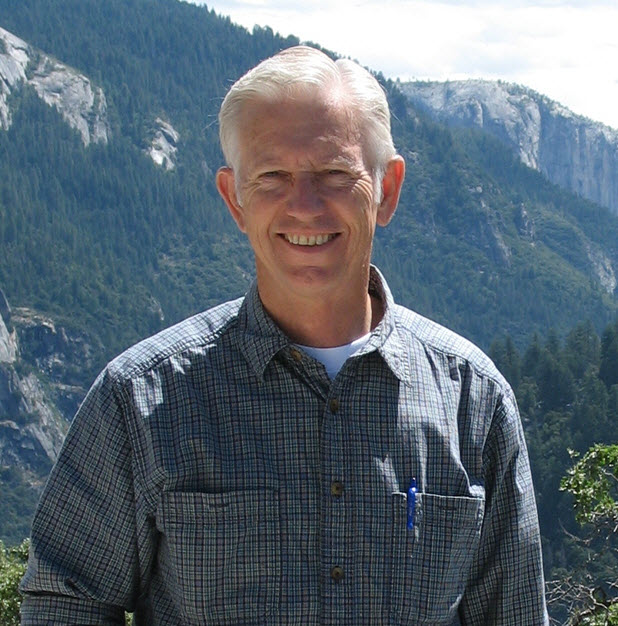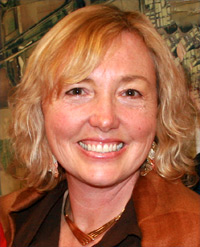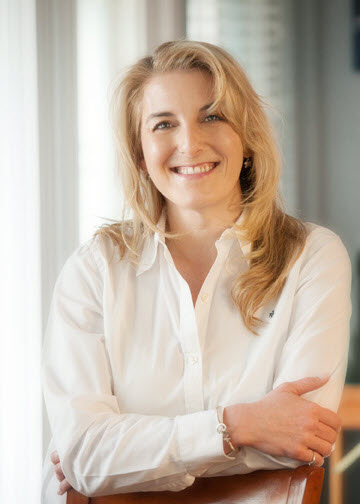Editor’s Note: Every week on Friday the Vanguard will send all five of the candidates a question that they will be asked to respond to by the end of the day on Thursday for a Friday publication. The answers are posted in the order that they were received.
Answers are limited to 350 words.
Question: Davis is a city that is often associated with a well-educated, upper middle class community that comes to city council meetings, works at UC Davis or in Sacramento, and is well represented at council meetings and other civic events. But there is increasingly another group of people that get hidden – renters, non-participants in civic activities, less affluent and less educated. Davis is no longer the monolithic community it may have been in the past: 42% percent of our school children are now non-white, more than one-fifth are Title I students.
In December 2012, the Vanguard called this “The Other Davis.” Explain your understanding of “The Other Davis” and what policies you would put forward as a councilmember to both engage this population and meet their needs?
[divider]
 Robb Davis
Robb Davis
There is not an “other Davis” but rather “other Davises.” Within the “other” category there is great heterogeneity—and the needs of each are distinct. My focus begins with the following groups.
1. An aging population, most of which will “age in place.” While most are on fixed incomes, for some the level of income is very low. An aging population has mobility challenges—both within living situations but also in relation to transportation—and service access challenges. We should require that all new housing be developed with universal design guidelines and we must work to assure that our public transit systems are not so university-focused that they cannot provide for the mobility needs of this group. We must have policies that encourage a thriving “aging in place” non-profit sector. We also need a more robust voluntary utility support program to enable low-income seniors to pay their bills.
2. Low-income workers; some single and some in families with children. In both cases finding affordable housing is a major challenge (vacancy rates here are 1.9%; 5% is a healthy rate). Increasing the supply of dense rental housing close to parks and transit is the best way to meet the needs of this group. Children in such families may qualify for subsidized school meal programs and this is one useful way to deal with the food insecurity these households experience. Helping such families access county-administered food stamp programs is a priority.
3. Homeless individuals and others at risk of homelessness. This includes an unknown number of school students. The needs of these groups are varied but interrelated: some are victims of abuse, others face significant mental health challenges and others struggle with addictions. Better coordination among county and non-profit service providers is necessary. We must also focus on drug and alcohol treatment and develop county-wide “housing first” policies to meet this group’s needs.
These groups are the most vulnerable in our city. As a Council member I will commit to finding ways to bring their voices to the table to define their needs and seek ways to meet them.
[divider]
 John Munn
John Munn
I don’t agree with some assumptions made in statements leading up to this week’s question. There has been a diversity of viewpoints in Davis that cannot be described as “monolithic” for quite a while. We have also had, for many years, a large percentage of “non-white” children in Davis public schools, because University students come here with their families from all over the world to study at UCD. There may be more Title I students now. Part of this might come from greater efforts at identifying Title I students, who bring additional money to their schools, or criteria changes leading to more students qualifying for the Title I program. And part may come from more rental housing. People who cannot afford a house in Davis can still value the safety and quality of life in Davis and of Davis schools and be willing to pay more to live here.
I am running for City Council to help make sensible decisions that bring fiscal sanity and sustainability to Davis, so that we can all continue to afford to live here. As part of this effort, I would promote, or at least not have the City getting in the way of, jobs for people at all income levels. Much is said about good paying jobs associated with innovation park developments. But these facilities would also require numerous support staff at lower wage levels. And existing businesses and the University also have lower wage employees. We should not, by misguided policies, drive out jobs that people need or increase local government and city services costs to the point where lower income residents can no longer afford to live here.
[divider]
 Sheila Allen
Sheila Allen
 Rochelle Swanson
Rochelle Swanson
There is sympathy, empathy, understanding and relating. I’m in a unique position in that I have been in a low-income family striving to make ends meet, humiliated by the lack of affluence and marginalized by the “alphabet soup” at PTA meetings.
I now find myself in a position where the perception is that I am the “Davisite” with the coveted letters behind the name.
To me the real “other Davis” is the people who are not part of the perception. They struggle to make rent, they don’t have the multiple degrees and they have likely been trapped as renters. They don’t work at the University. They are not students and they do not qualify for special programs.
The perception is that Davis is affluent and yet nearly a quarter of our students qualify for free and/or reduced lunch. It’s tough to struggle, but I would argue it’s tougher when you are the outlier and your reality is not reflected in the policies of your community.
I have been part of that “other Davis.” It can be lonely. The term “lip service” comes to mind. Engagement means reaching beyond the loud voices of the political insiders and pulling in those that need a voice — recognizing those not being represented.
I think one of the main reasons I am on Council is to utilize the memories of not fitting in, struggling financially and being sidelined for not having the time and money to volunteer at school or serve on a commission. One of things I would like to institute in the next term is a true quarterly Town Hall.
I would like to see the Council hold meetings in neighborhood multi-purpose rooms at different schools on different days and times throughout the year so that city government is less intimidating and more accommodating to the real life work schedules. “We the people” should not feel like a clique, it should feel like all people count.
[divider]
 Daniel Parrella
Daniel Parrella
For starters I don’t think we should be calling it “The Other Davis,” we should be calling it “The Real World.” The real world that happens to be encroaching upon the closely guarded bubble that is the city of Davis.
I had an interview with the Yolo County Democratic Central Committee not too long ago and they asked me about district elections. At the time I did not think they were a good idea. Now I think it is something we should seriously consider.
The advice I was given when I decided to run for city council illustrates the problem with at-large elections when it comes to representing “The Other Davis.” I was told to ignore students, renters and focus on people who have voted in the past 3 city council elections. For precinct walking I was told to focus on peripheral neighborhoods where at least 2/3 of the houses meet the criteria of a frequent voter. I will admit it was good advice. Many of the east/central Davis districts (from a win-the-election perspective) were a complete waste of my time. This weekend I will begin repeating peripheral precincts rather than finish the few precincts I have remaining in central Davis.
At-large elections HIGHLY encourage candidates to ignore lower propensity voters. I suspect it will get worse before it gets better. Woodland has a nearly 50% Hispanic population but is represented by 5 older, republican, male Caucasians.
District Elections in Davis might give “The Other Davis” a better chance of winning a council seat and having some representation. Rather than having to appeal to close to 65,000 people, candidates would focus on 13,000. With a district that size I could reach out to almost every adult in the district and be a better candidate because of it.






Daniel
“District Elections in Davis might give “The Other Davis” a better chance of winning a council seat and having some representation”
At the beginning of Daniel’s response I believed that he really had this right. I too have walked precincts for “my candidates” and have had a great deal of trouble with the idea of excluding certain groups deliberately. It seemed to me that we should be engaging with everyone and yet I was always over ruled by the reminder that we were here to “win the election” and so could not spend time with non voters.
However, with the statement above, I am not sure that Daniel truly does understand that there is not a monolithic “other” to be represented. Frankly and I belong roughly to the same demographic. We are over 50, white, affluent and yet we could hardly see the world more differently. I very much disagree that denizens of some artificial construct called “the other Davis” are likely to be any more uniform in their views than are Frankly and I.
From an economic and ethnic standpoint, the “other” Davis almost entirely lives in East and South Davis, and neither district has been well represented on the council (if at all).
disappointed with the lack of resonance of this issue. robb davis, who i would expect to be an ally here, quickly shifted the discussion away from the group identified here. during the values discussions, homeless and seniors are highlighted but not people of color and the poor in davis.
I liked Munn and Parrella’s answers that began by rejecting the premise of the so-called “question”.
parrella didn’t reject the premise of the question, he questioned the terminology.
“The real world that happens to be encroaching upon the closely guarded bubble that is the city of Davis.”
in fact, he is restating the core part of the embedded idea.
What percentage of the “other Davis” are undocumented immigrants?
TBD
“What percentage of the “other Davis” are undocumented immigrants?”
I am unclear what you perceive as the relevance of this question. If they are “undocumented” then they will not be able to vote. Since Daniel Parrela and I are consistently over ruled when canvassing on the issue of not spending time and resources on non voters, for the undocumented, they will always be neglected in terms of representation whether we keep our current system or moved to districts, they still will not be able to vote and still will not be actively courted. Can you clarify ?